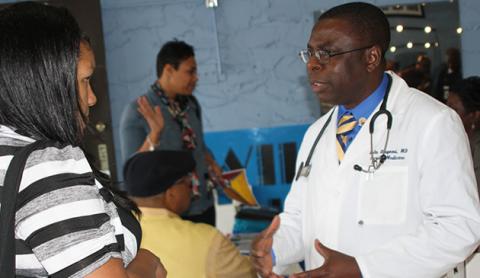
Power to Quit

Headed by University of Minnesota Medical School Professor Kola Okuyemi, the UROC-based Power to Quit II program aims to improve smoking cessation rates in homeless people.
Smoking is debilitating to any population, but it can be downright devastating to the more than 70 percent of homeless people who smoke. In addition to being deadly, the habit is often tied to other substance abuse issues, which can reinforce cycles of homelessness and dependency.
Headed by University of Minnesota Medical School Professor Kola Okuyemi, the Power to Quit II program focuses on how to improve smoking cessation rates in homeless people. Its goal is to determine whether intensive smoking intervention coupled with integrated alcohol abuse and smoking counseling can help homeless people kick the habit. Okuyemi’s first Power to Quit study launched in 2007 found the high rate of alcohol abuse in the homeless population affected participants’ ability to quit smoking.
Funded in part by the National Heart, Lung, and Blood Institute, Okuyemi’s shelter-based study is housed at UROC, where its five-person staff conduct interviews, coordinate follow-up visits and offer participants an alternative meeting place outside of their shelters.
“UROC’s location in North Minneapolis defines the inclusive nature of the research,” says Okuyemi. Power to Quit II draws from community experience by including former members of the Twin Cities homeless population to serve on the research team as community mobilizers.
“This is not a ‘top-down’ study,” says Okuyemi. “It was jointly designed by researchers with community members in consultation with homeless folks. UROC’s involvement in our project exemplifies the community-based approach necessary to conduct effective research in real-world scenarios.”